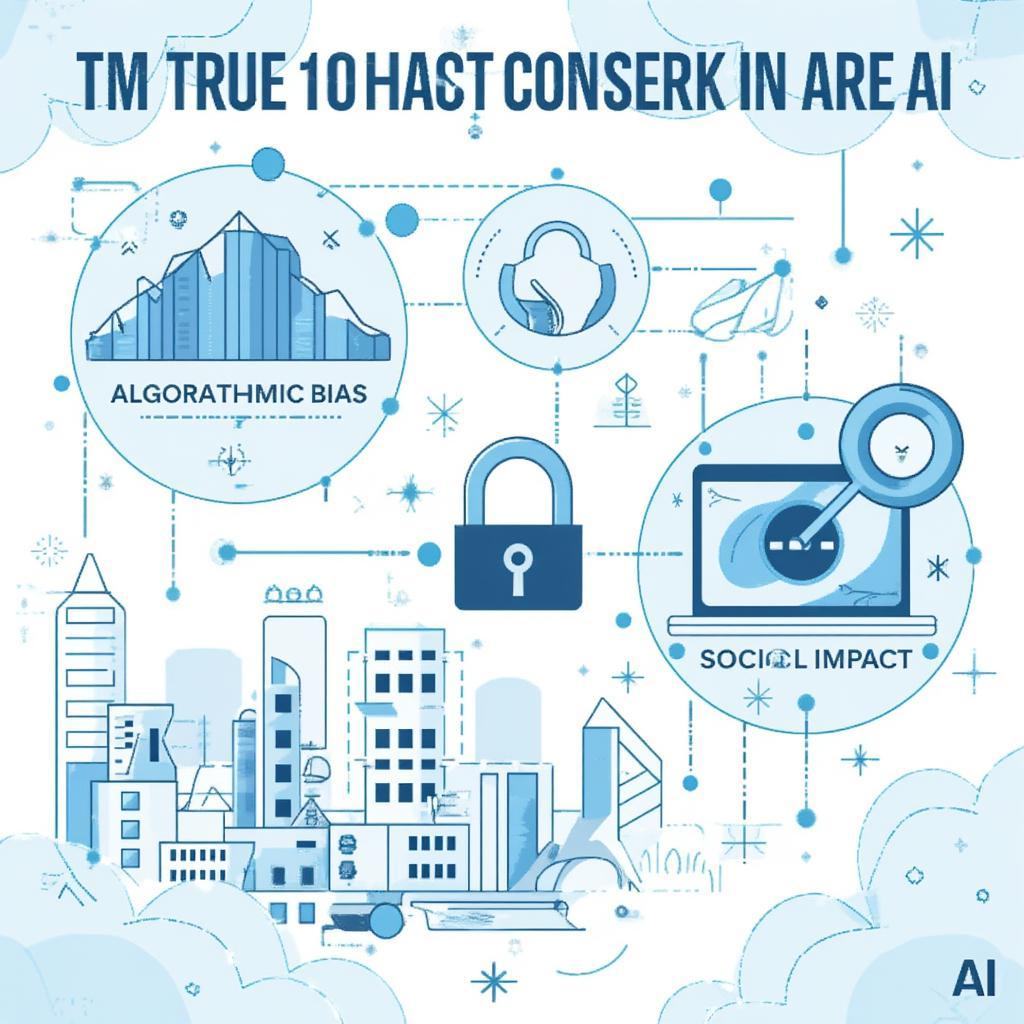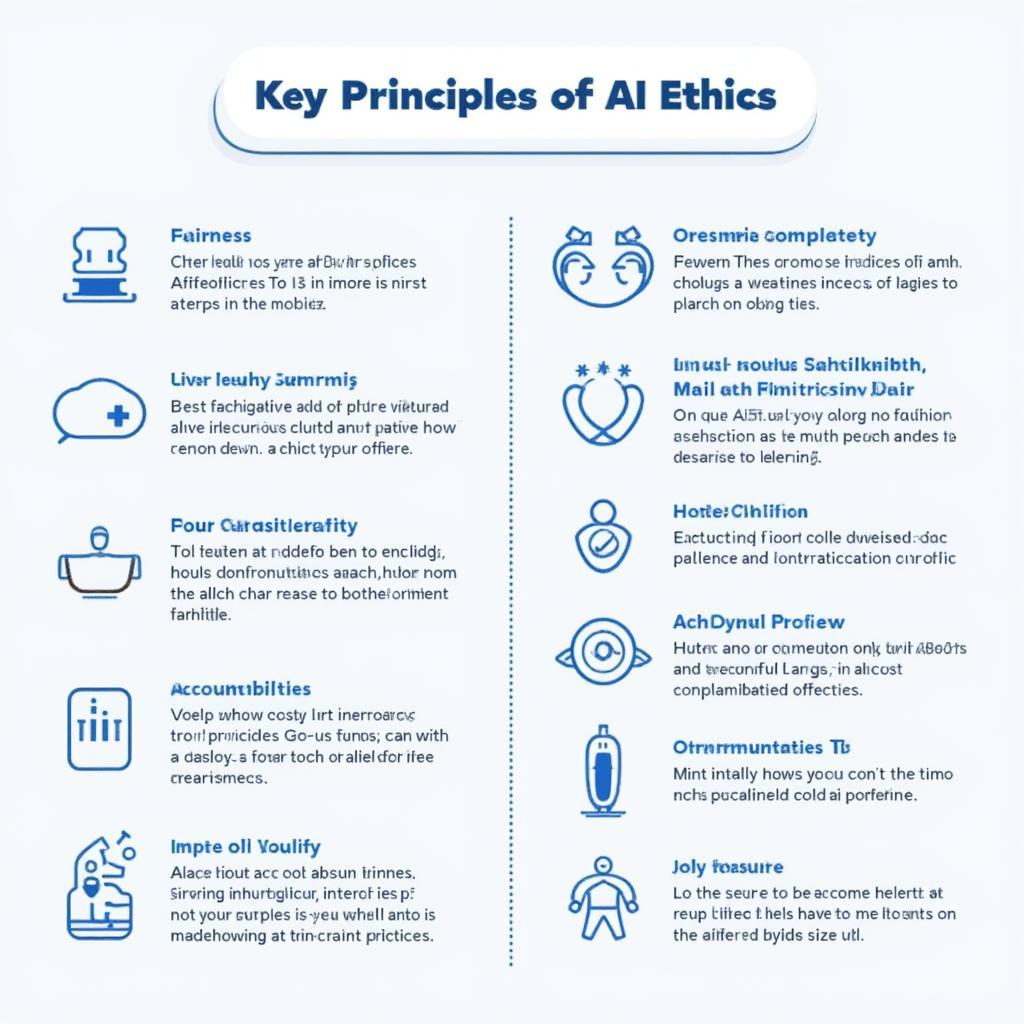Artificial Intelligence Examples in Real Life

Artificial intelligence (AI) is rapidly transforming our world, seamlessly integrating into our daily lives in ways we often don’t even realize. From the moment our smart alarm clocks wake us up to the personalized recommendations we receive on streaming platforms, AI is constantly at work. This article explores various Artificial Intelligence Examples In Real Life, demonstrating its profound impact across diverse industries and highlighting the ethical considerations that must accompany its development.
Similar to artificial intelligence real life example, AI is pervasive in modern society.
AI in Everyday Life
Artificial intelligence has become an integral part of our daily routines. Virtual assistants like Siri and Alexa utilize natural language processing to understand and respond to our commands, managing our schedules, playing music, and even controlling smart home devices. Personalized recommendations on platforms like Netflix and Spotify are powered by AI algorithms that analyze our viewing and listening habits, suggesting content tailored to our preferences. Even spam filters, a seemingly mundane application, employ AI to identify and remove unwanted emails from our inboxes.
What are some common examples of AI in everyday life? AI powers virtual assistants, personalized recommendations, spam filters, and even facial recognition for unlocking our phones.

AI in Healthcare
AI is revolutionizing the healthcare industry, offering new possibilities for diagnosis, treatment, and patient care. AI-powered diagnostic tools can analyze medical images, such as X-rays and MRIs, to detect anomalies and assist doctors in making more accurate diagnoses. AI algorithms can also predict patient outcomes based on their medical history and current condition, helping healthcare providers make informed decisions about treatment plans. Furthermore, AI is being used to develop personalized medicine, tailoring treatments to individual patients based on their unique genetic makeup.
How can AI improve healthcare? AI can improve diagnosis accuracy, predict patient outcomes, personalize treatments, and even automate administrative tasks.

AI in Business and Finance
The business and finance sectors are also benefiting from the advancements in AI. AI algorithms are being used to automate repetitive tasks, improve customer service, and detect fraudulent activities. Chatbots, powered by AI, can handle customer inquiries, freeing up human agents to focus on more complex issues. In finance, AI is used to assess credit risk, manage investments, and detect suspicious transactions, enhancing efficiency and security.
What are the benefits of AI in business and finance? AI can automate tasks, improve customer service, enhance security, and make more informed decisions in areas like investment and risk management.

The Ethical Implications of Artificial Intelligence
As AI becomes increasingly integrated into our lives, it is crucial to address the ethical implications. Bias in algorithms can perpetuate and even amplify existing societal inequalities, leading to discriminatory outcomes. The issue of job displacement due to automation is another concern that needs careful consideration. Furthermore, the potential for misuse of AI, particularly in areas like surveillance and autonomous weapons systems, raises serious ethical questions.
Why is ethical AI important? Ethical AI development ensures fairness, accountability, transparency, and safeguards against potential harms. It’s crucial for building a just and equitable future with AI.
The Future of Artificial Intelligence
The future of artificial intelligence is filled with both immense potential and significant challenges. As AI continues to evolve, it will likely become even more integrated into our lives, transforming industries and shaping the way we live, work, and interact with the world. However, realizing the full potential of AI requires addressing the ethical considerations, ensuring that its development and deployment are aligned with human values and contribute to a more equitable and sustainable future. Similar to strong artificial intelligence is, the development of AI raises questions about its potential capabilities and societal impact. The concern over google ai self aware highlights the importance of careful development and ethical considerations in AI.
Conclusion
Artificial intelligence examples in real life demonstrate its transformative power across various sectors. From healthcare and finance to our daily routines, AI is changing the way we live and work. However, as we embrace the potential of AI, we must also grapple with the ethical implications, ensuring that its development is guided by principles of fairness, accountability, and transparency. By prioritizing ethical considerations, we can harness the power of AI to create a more just, equitable, and sustainable future for all.




